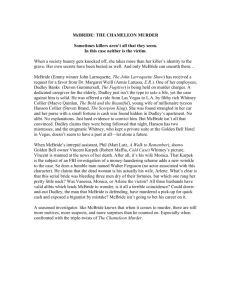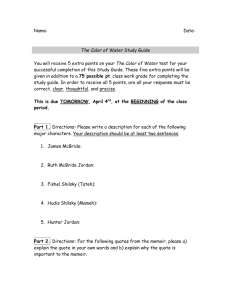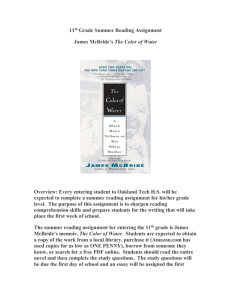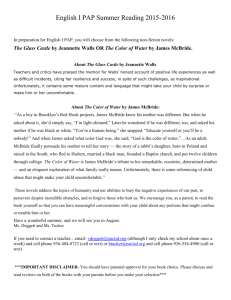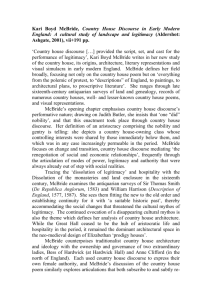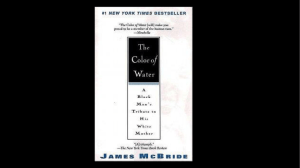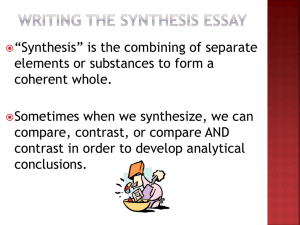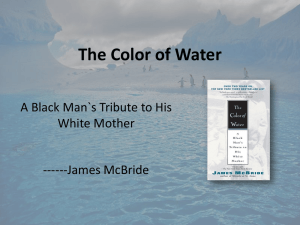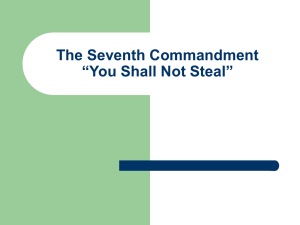Color of Water Review
advertisement
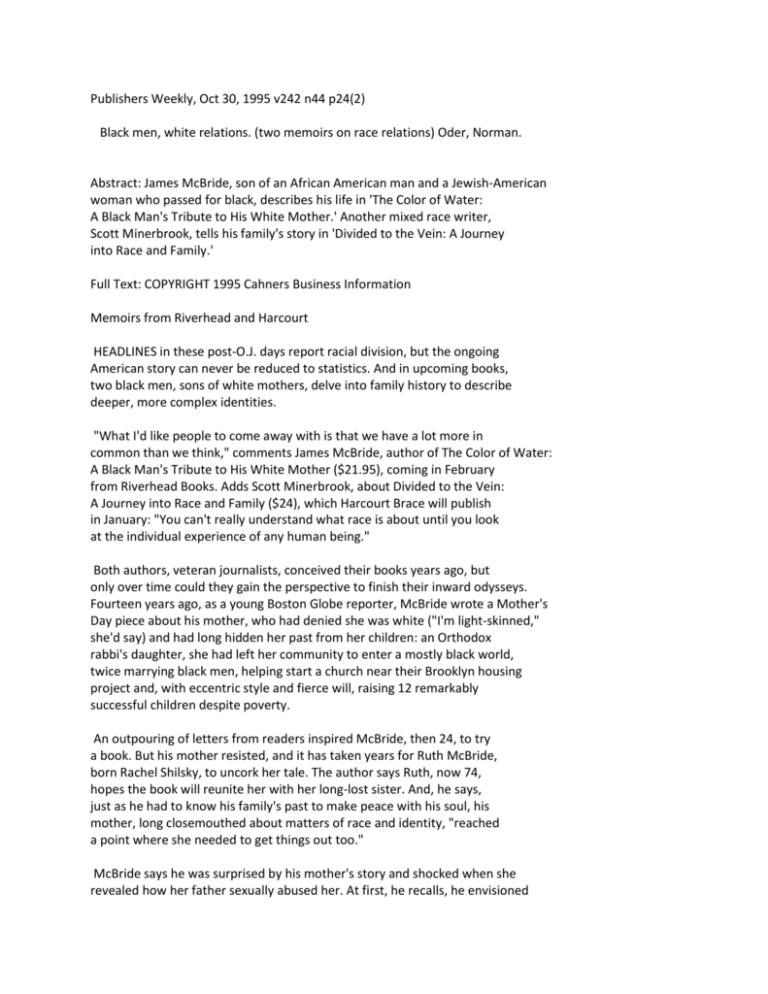
Publishers Weekly, Oct 30, 1995 v242 n44 p24(2) Black men, white relations. (two memoirs on race relations) Oder, Norman. Abstract: James McBride, son of an African American man and a Jewish-American woman who passed for black, describes his life in 'The Color of Water: A Black Man's Tribute to His White Mother.' Another mixed race writer, Scott Minerbrook, tells his family's story in 'Divided to the Vein: A Journey into Race and Family.' Full Text: COPYRIGHT 1995 Cahners Business Information Memoirs from Riverhead and Harcourt HEADLINES in these post-O.J. days report racial division, but the ongoing American story can never be reduced to statistics. And in upcoming books, two black men, sons of white mothers, delve into family history to describe deeper, more complex identities. "What I'd like people to come away with is that we have a lot more in common than we think," comments James McBride, author of The Color of Water: A Black Man's Tribute to His White Mother ($21.95), coming in February from Riverhead Books. Adds Scott Minerbrook, about Divided to the Vein: A Journey into Race and Family ($24), which Harcourt Brace will publish in January: "You can't really understand what race is about until you look at the individual experience of any human being." Both authors, veteran journalists, conceived their books years ago, but only over time could they gain the perspective to finish their inward odysseys. Fourteen years ago, as a young Boston Globe reporter, McBride wrote a Mother's Day piece about his mother, who had denied she was white ("I'm light-skinned," she'd say) and had long hidden her past from her children: an Orthodox rabbi's daughter, she had left her community to enter a mostly black world, twice marrying black men, helping start a church near their Brooklyn housing project and, with eccentric style and fierce will, raising 12 remarkably successful children despite poverty. An outpouring of letters from readers inspired McBride, then 24, to try a book. But his mother resisted, and it has taken years for Ruth McBride, born Rachel Shilsky, to uncork her tale. The author says Ruth, now 74, hopes the book will reunite her with her long-lost sister. And, he says, just as he had to know his family's past to make peace with his soul, his mother, long closemouthed about matters of race and identity, "reached a point where she needed to get things out too." McBride says he was surprised by his mother's story and shocked when she revealed how her father sexually abused her. At first, he recalls, he envisioned a book solely about Ruth, in her Yiddish-inflected voice. Thus, he produced an account for his agent, Flip Brophy of Sterling Lord Literistic, to pitch. "It was an amazing narrative, but it wasn't a book," recalls senior editor Cindy Spiegel at Riverhead, so she advised McBride to counterpoint and contextualize the oral history. The Color of Water now appears in alternating voices of mother and son. McBride recounts the "orchestrated chaos" of his upbringing, and how his mother herded the brood to cultural events and, in some link with her lost past, made sure they attended mainly Jewish schools. Like fellow memoirist Minerbrook, McBride also passed through teen years of rebellion and petty crime. To flesh out his memories, McBride looked at letters and visited his old neighborhoods--and, in a trip to Suffolk, Va., where his mother grew up, found people who remembered Rachel Shilsky. McBride has pursued careers as a jazz saxophonist, composer and producer. Now, his priority is writing: he's working on a novel. Meanwhile, he'll go on an East Coast tour--and his mother will join in some publicity. Riverhead plans a first printing of 75,000; the book is a BOMC and QPB alternate. Like McBride, Scott Minerbrook went south to learn about the white side of his family he never knew. His mother, a clothing designer who left her poor southeast Missouri farm family to marry a middle-class black man from Chicago, had been shunned by her white relatives. Yet Minerbrook felt his own demons--grief and anger, racial and familial--required a reckoning with blood. So in 1990, he visited Caruthersville, in search of the grandmother he had met once, but was rebuffed. His ensuing article for U.S. News & World Report, for which he's a national correspondent, garnered letters both supportive and abusive. It also brought him a book contract. Minerbrook had circulated a proposal three years earlier, but found no takers. But Claire Wachtel, then an editor at Harcourt, having read Minerbrooks essay in a doctor's waiting room, approached him. (His agent is Lisa Bankoff of ICM.) His eight-year effort to recount his parents' path, and his own upbringing, the 43-year-old Minerbrook observes, "gave me a chance to grow up" around the book, transmuting anger into clarity. Indeed, Minerbrook's book began in a journal, which had less to do with race than with child abuse: his father, whose success in several jobs took the family from New York to a mostly white neighborhood in suburban Norwalk, Conn., battled heroin addiction, fought violently with his wife and sometimes beat his children. While Minerbrook thinks his family turmoil was furthered by America's racial climate, he says it's tough to sort out "what's race, what's not." And while Minerbrook felt white racism in his veins and on the street, his book also tells how, at Harvard, he confronted the bitterness and racial exclusivism of fellow blacks: "The excessiveness of nationalism destroys the great accomplishment of African-American people, to be able to embrace difference and diversity." Both authors, each of whom comfortably identifies himself as black, emerged from their efforts broadened: McBride recognizes his longstanding affinity with Jews, while Minerbrook-- who had a successful reunion with his grandmother a year after his first attempt---can now acknowledge the white root in his family tree. And just as McBride learned that the "white man's world" was not so free as it looked, so Minerbrook saw that suffering spreads beyond race: "[Conservative essayist] Shelby Steele talks about who's innocent and who's guilty. I think that's a misstatement. Nobody's innocent and everybody's guilty." While his white relatives cut off the Minerbrooks (and denied their own part-Indian heritage), he also learned how some black relatives tried to pass for white. To inspire his family's story, Minerbrook especially cites writings by George Orwell. And, when Wachtel left Harcourt, Minerbrook decided to remain, through a succession of editors, in loyalty to the house that bought his book and published his hero, Orwell. Harcourt plans a first printing of 20,000 and an eight-city tour.

